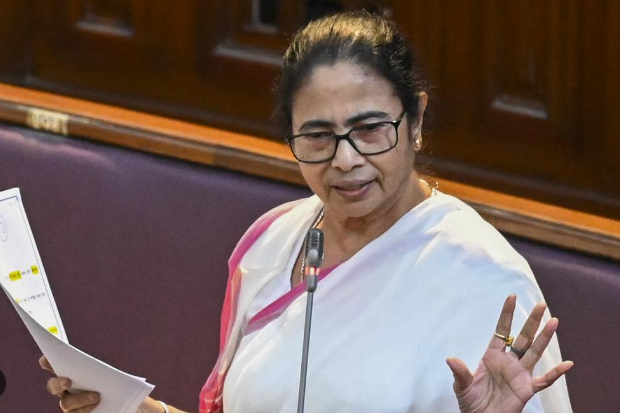
An anti-rape measure mandating the death penalty for offenders is passed by the West Bengal Assembly
Last Updated on September 5, 2024 by Administrator
According to the bill, rape offenders must incur the death penalty if their actions cause the victim to pass away or go into a vegetative state.
The Anti-Rape Bill, officially known as the Aparajita Woman and Child (West Bengal Criminal Laws Amendment) Bill, 2024, was unanimously approved by the West Bengal Legislative Assembly on Tuesday.
The Bill mandates the death sentence in the event that the rape victim passes away or is placed in a vegetative state, and also calls for harsher penalties for those found guilty of rape.
It was implemented following the horrific August 9 rape and killing of a resident physician at the RG Kar Medical College and Hospital in Kolkata.
The Bill was introduced by the Trinamool Congress (TMC) government today, and a PTI report states that it was passed by a unanimous vote with support from the opposition led by the Bharatiya Janata Party (BJP). The recently passed anti-rape bill seeks to expedite the investigation and conviction of terrible crimes against women and children, as well as to strengthen the penalties for rape.
In order to achieve this, it aims to modify certain sections of the Protection of Children from Sexual Offenses Act (POCSO Act), the Bharatiya Nyaya Sanhita (BNS), and the Bharatiya Nagarik Suraksha Sanhita (BNSS), as they relate to West Bengal.
The following are some of the suggested changes:-
Increased penalties. It is proposed that the punishment for the crime of rape (Section 64, BNS) be increased to life in prison for the duration of the offender’s natural life or death, plus a fine. Currently, rigorous imprisonment for a minimum of 10 years, with the possibility of life imprisonment (life imprisonment for the rest of one’s life in some situations), is the stipulated punishment for this offence (under the unamended BNS).
It is proposed to make the death penalty and a fine obligatory for the crime of rape (Section 66 BNS) in cases where the victim passes away or is left in a vegetative state. The punishment for this offense, as stipulated by the unamended BNS, is rigorous imprisonment for a minimum of twenty years, with the possibility of imprisonment for the entirety of one’s natural life, or death.
The Bill stipulates that the punishment for gang rape (Section 70(1) BNS) is either the death sentence plus a fine or life imprisonment for the balance of the offender’s life. The BNS stipulated that the penalty was a minimum of 20 years in jail, with the possibility of a life sentence.
It is proposed to increase the penalty for the Section 72 BNS offence of exposing the identity of a rape victim to three to five years in jail and a fine. In comparable circumstances, a higher sentence is suggested for publishing court proceedings without authorization (the previous BNS’s penalty for such offences was two years in prison and a fine).
Shorter trial and investigation deadlines
An amendment to Section 193 of the BNSS is requested in order to shorten the time frame for rape case investigations. According to the Bill, these investigations must be finished in 21 days as opposed to the two months that the BNSS stipulates. The Bill further states that this timetable may be extended by a maximum of 15 days for reasons that are documented in writing in the case diary.
The Bill also proposes amending Section 346(1) of the BNSS so that inquiry or trial of such cases is completed within 30 days from the date of filing the chargesheet.
Task forces and special courts
The Bill also proposed an amendment to the BNSS to establish special courts under a new Section, namely Section 29A. These courts are tasked with ensuring the expeditious completion of inquiries or trials in rape and related cases.
In addition, rape proceedings would be presided over by a Special Public Prosecutor appointed through official government notification under the recently proposed Section 29B. The proposed clause stipulates that a lawyer appointed to this position must have at least seven years of legal experience.
In addition, Section 29C of the Bill is introduced, which mandates the district-level establishment of the Aparajita Task Force, a special task force. The Deputy Superintendent of Police will lead this task team, which will be in charge of managing rape cases.
The provision states that investigations under this task force would, to the greatest extent feasible, be led by female police officers. The proposed Section 29C (4) adds that failure to assist this task force in carrying out its tasks could result in six months of imprisonment, a fine up to ₹5,000, or both.
A group of attorneys from the Aquilaw law firm, including counsel Sucharita Basu, Soumen Mohanty, Swati Sharma, Riddhi Jain, Shibana Farheen, and Upasana Mohanty, were led by advocate Sanjay Basu.




